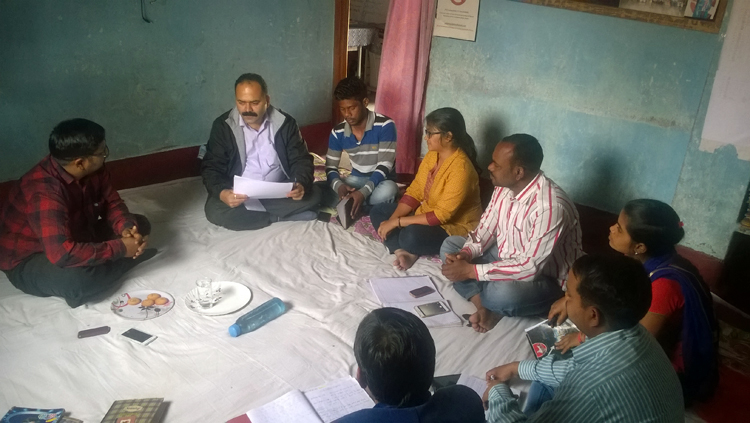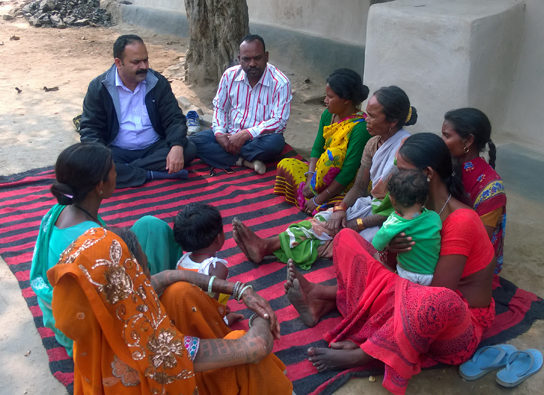Assessment Lays Groundwork for Support to Civil Society Organization Network in India
India has set an ambitious goal of bringing 48 million new users to family planning (FP) services by 2020, as part of its Family Planning 2020 (FP2020) commitment. Meeting this goal will require concerted action by both government and non-government actors, particularly civil society organizations (CSOs). CSOs play a crucial role in advocacy and demand generation for FP services at the community level and also foster community empowerment by promoting citizens’ voices for accountable, transparent service delivery.

CSO OCA underway at the Srijan Foundation’s office in Kuju village, Jharkhand.
Recognizing the powerful potential of CSOs, and the capacity gaps that inhibit this potential, the HFG project has partnered with the White Ribbon Alliance of India (WRAI), a prominent countrywide network of grassroots CSOs engaged in FP advocacy. The project has helped develop a structured plan to provide capacity building support to CSOs, focusing on strengthening the operations and sustainability of CSO networks working in FP in India. The plan centers on a few key areas including: organizational management, leadership, and fundraising. 26 WRAI CSO network partners from two states—11 from Rajasthan, 15 from Jharkhand—have been selected for this support.
As a critical first step in supporting the CSOs, HFG completed an organizational capacity assessment (OCA) to appraise the CSOs’ existing leadership, management, programmatic, financial, and technical strengths and challenges. Findings from the OCA will be used to design a responsive training curriculum aimed at bridging the identified gaps. Capacity building trainings for the CSOs will be held in Rajasthan and Jharkhand in June and July 2017.
The OCA was conducted at six CSOs in each state through two-day field visits to each CSO, where detailed discussions were held with board members, key program and finance personnel, and community members. The OCA has provided valuable insights into the CSOs’ strengths and weaknesses. While some issues vary by organization, a major overall finding is that although most CSOs have the needed registrations in place and are law-abiding, strategic and operational planning is neither formalized nor consistent.

Interaction with the community in Jharkhand’s Jadakarani village, the catchment area of the Srijan Foundation.
The assessment pointed to several needs, some of the key needs being:
- robust administrative, financial, and human resource management manuals;
- stronger management systems and capacity for networking with funding agencies;
- stronger communications and knowledge management; and
- professional skills training for finance teams.
These and other important findings from the OCA will guide the training plan, which is aimed at improving the CSO network’s organizational capacity and financial sustainability. Strengthening CSOs is not only crucial for advancing India’s FP goals, but also for ensuring that vulnerable populations, particularly women in rural areas, have a voice and representation in securing transparent and accountable health care.



